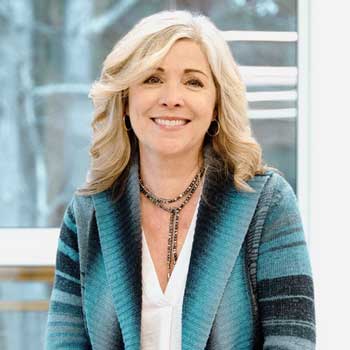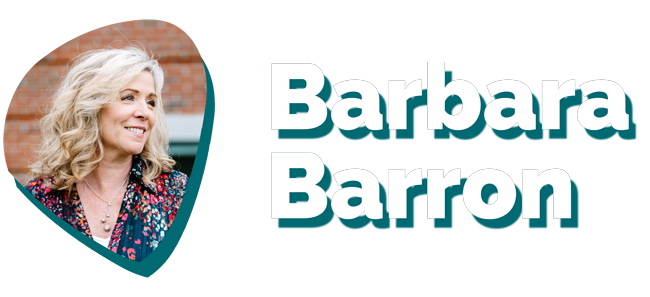by Barbara Barron | Posted March 27th, 2024 | Subscribe to this newsletter

Before I write anything that might have me drifting into the land of self-promotion, let me start with this qualifier: I may not be the right consultant for you.
I am honored and, after 7 years of being a consultant, still flattered to be asked nearly every day if I am available to work for various schools. Some I eagerly contract with, others I do a limited project before deciding if I want to do more, and still others I thank for their interest and the opportunity, but decline.
How do I make those decisions? What are the tells that help me know (earlier and earlier as I gain years of experience at this!) where the opportunity is rife with possibility for great results and where it is rife with risks and likely disappointment?
I offer all of this to help you if you decide to search for a consultant to support you with your project.
First, there are all kinds of advancement consultants out there. Do a Google search. It’s a large and growing field. There are the giant international firms and local ones.
There are firms with a focus like those that do only capital campaigns for all kinds of nonprofits (see Capital Campaign Pro. Excellent option). There are branding and communication firms that also do campaign strategy and associated materials (see Mission Minded. Also, outstanding.)
Most firms work with a variety of types and sizes of organizations from huge hospitals and universities to animal shelters, arts organizations, and social justice reform. And some firms, like mine, have a niche. For me, it’s only independent schools. All aspects of advancement work — but just in schools.
It’s what I know well. It’s what I love.
When I am approached by a school, I have learned to ask some key questions, so I quickly determine if the likelihood is high for a good client-consultant relationship versus when it’s best to say no thank you. Or no thank you for now…
Have you subscribed to this newsletter yet? It only takes a minute.
Here are some of the reasons I will not work with a school, so you can measure your school against these criteria. Whenever you decide to engage a consultant, this may help you to be sure you’re ready so you can get the most out of a consultant engagement.
Is there support for this work?
Across the table from the DoD to the Head to the Board, is there a consensus that a consultant might be helpful? Has a realistic budget been created for this work? For capital campaigns, the budget ought to include about 10% of the total project to be ear marked for the costs of the campaign including a consultant. For other projects, is the funding coming from the advancement department budget? The Head’s? Does everyone understand that they will need to devote time to the work? Is there adequate staff within the advancement department to add this?
Is there agreement about what the work is?
Across that same table and with input from others in the school, what are we trying to achieve? What are the outcomes needed and how will we measure them? How does the work flow from the school’s strategic plan? Does everyone understand the role they will play? What does accountability and reporting look like? For me, the school is my client but I only report to the Head of School, never to a volunteer.
Is the timeframe realistic?
Closely connected to whether there is adequate financial and human support for the work, we need to consider where it fits within an existing, robust schedule of activities and events. The school calendar is packed, as we know. Adding another set of strategy meetings, training, content development sessions is going to be challenging. To say nothing of the number of cultivation and solicitation meetings a campaign or pre-campaign project may require. For some schools, activities like a feasibility study is tricky to conduct over the summer. Care needs to be taken to sequence the work within a larger context and calendar.
How healthy are internal relationships?
How are things really going between the key players: DoD, Head of School, other advancement staff, key Board members and other leader volunteers? Are there respectful lines of communication, clearly defined roles and responsibilities, and a spirit of collaboration and openness? Or are we looking at fiefdoms, competition, and suspicion? Or the overreach of volunteers into operations? Is there a lack of Board-level engagement in the work of securing the resources necessary to bring the school’s mission to life?
These dynamics are going to play out in every interaction we have. So it’s wise to know about them upfront — if we’re going to attempt to play well in the sandbox together. When I sense a school is struggling with all or most of these issues, I am likely to respectfully decline. Maybe just for now as those issues get worked out unless you are expressly seeking my counsel to help address those conditions towards building a better system.
But more often, I notice one or two of them at hand (and often unspoken) and need to decide how crippling they may be to our work. That’s going to require an honest conversation (or many) as we navigate this decision and plan together.
Do we want to work together?
This question is more subjective, sure, but just as important as the other four.
For me, the school must choose me, and I choose them. I don’t generally respond to RFPs because they tend to be rather faceless. They feel, to me, like a competition without the benefit of understanding the unique nature and complexity of the relationship ahead.
I believe my clients would say that it is as much my personality and work style as my years of experience and industry know-how that make me the one they choose to work with. I’d say it is their openness to learning and growth, sturdiness in the face of the vulnerability we feel when stretching our capacity, and a sense of humor that make me want to work with a school.
In addition to good scores on the above five measures, I use this simple but shockingly accurate method: when I look at my weekly calendar on Sunday afternoon and see a meeting with this client on my schedule, do I feel excited and engaged or do I dread it? You might try the same trick.
At the end of the day, a good relationship with a consultant should be generative, rewarding, challenging, and fun – for everyone! We say that “good fit” is essential in our schools (teachers with students, families with the culture, students and the workload). The same is true for our work in advancing the mission of the school. There needs to be a good fit, great chemistry, and deep respect.
So, whether you are considering retaining someone to assist you with building your program, conducting an advancement appraisal or a feasibility study, managing your campaign, or offering a training session for your Board, ask yourself these questions. And choose wisely.
Thank you for everything you’re doing.

Barbara Barron
[email protected]
Share this post:

BARBARA BARRON is one of the most respected and highly sought-after independent advancement professionals in the country, having worked with dozens of schools in every corner of the United States.
She has raised over $20 million for schools where she served as the Director of Development. Barbara is a New York Times bestselling author, speaker, and presenter who currently advises dozens of schools in various capacities. She is considered a thought leader in the world of advancement, with her writing widely shared by professionals in development offices worldwide.
More Advancement Articles






